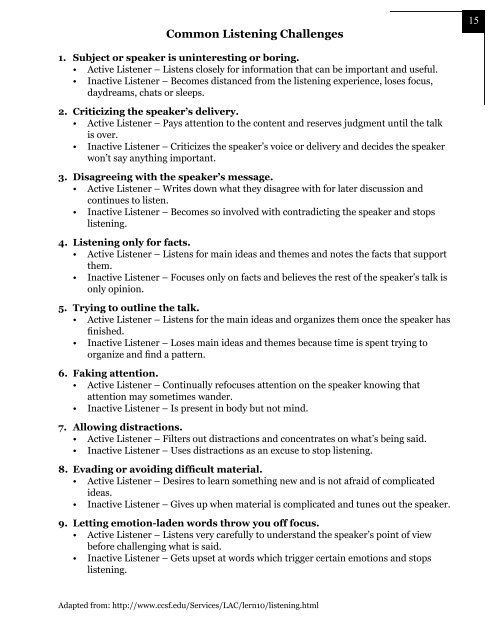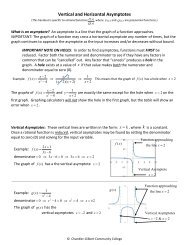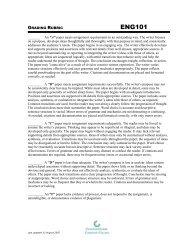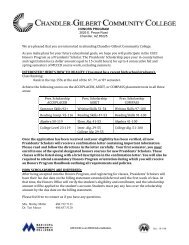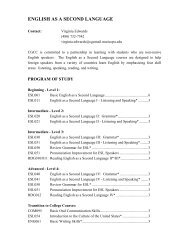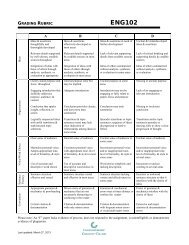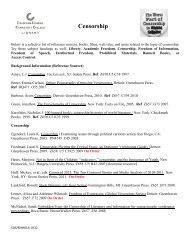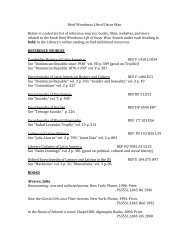Tutor Training Manual.indd - Chandler-Gilbert Community College
Tutor Training Manual.indd - Chandler-Gilbert Community College
Tutor Training Manual.indd - Chandler-Gilbert Community College
You also want an ePaper? Increase the reach of your titles
YUMPU automatically turns print PDFs into web optimized ePapers that Google loves.
Common Listening Challenges<br />
15<br />
1. Subject or speaker is uninteresting or boring.<br />
• Active Listener – Listens closely for information that can be important and useful.<br />
• Inactive Listener – Becomes distanced from the listening experience, loses focus,<br />
daydreams, chats or sleeps.<br />
2. Criticizing the speaker’s delivery.<br />
• Active Listener – Pays attention to the content and reserves judgment until the talk<br />
is over.<br />
• Inactive Listener – Criticizes the speaker’s voice or delivery and decides the speaker<br />
won’t say anything important.<br />
3. Disagreeing with the speaker’s message.<br />
• Active Listener – Writes down what they disagree with for later discussion and<br />
continues to listen.<br />
• Inactive Listener – Becomes so involved with contradicting the speaker and stops<br />
listening.<br />
4. Listening only for facts.<br />
• Active Listener – Listens for main ideas and themes and notes the facts that support<br />
them.<br />
• Inactive Listener – Focuses only on facts and believes the rest of the speaker’s talk is<br />
only opinion.<br />
5. Trying to outline the talk.<br />
• Active Listener – Listens for the main ideas and organizes them once the speaker has<br />
finished.<br />
• Inactive Listener – Loses main ideas and themes because time is spent trying to<br />
organize and find a pattern.<br />
6. Faking attention.<br />
• Active Listener – Continually refocuses attention on the speaker knowing that<br />
attention may sometimes wander.<br />
• Inactive Listener – Is present in body but not mind.<br />
7. Allowing distractions.<br />
• Active Listener – Filters out distractions and concentrates on what’s being said.<br />
• Inactive Listener – Uses distractions as an excuse to stop listening.<br />
8. Evading or avoiding difficult material.<br />
• Active Listener – Desires to learn something new and is not afraid of complicated<br />
ideas.<br />
• Inactive Listener – Gives up when material is complicated and tunes out the speaker.<br />
9. Letting emotion-laden words throw you off focus.<br />
• Active Listener – Listens very carefully to understand the speaker’s point of view<br />
before challenging what is said.<br />
• Inactive Listener – Gets upset at words which trigger certain emotions and stops<br />
listening.<br />
Adapted from: http://www.ccsf.edu/Services/LAC/lern10/listening.html


